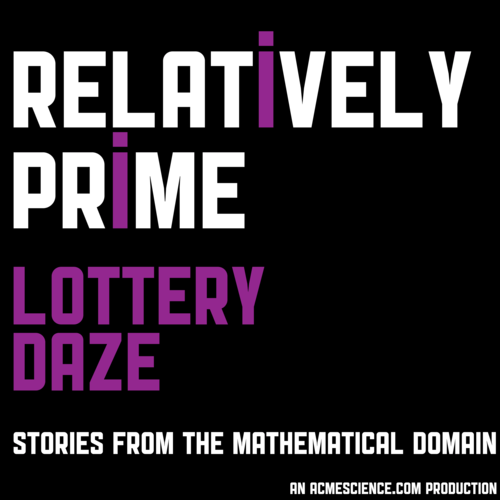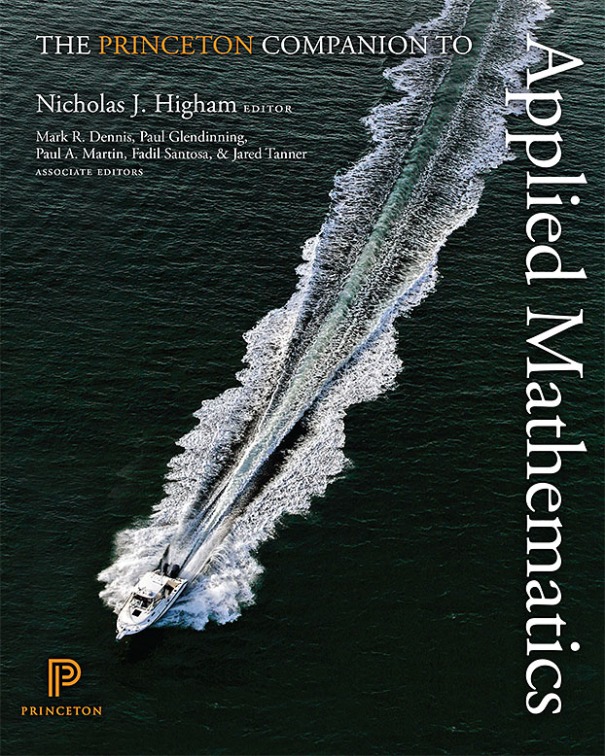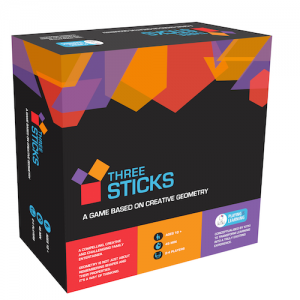If you appreciate the work of internet mathematician and hyperbolic virtual reality pioneer Vi Hart, or even if you’ve never heard of her before, you can now help support her work by subscribing to her Patreon. Vi Hart has never put any adverts on her videos or charged for her work until now, but since she’s stopped being employed by people who support that, she’s in need of your help. Check out the video below for details, or click the link below that to add your support.
You're reading: Posts Tagged: crowdfunding
- Nick Higham’s blog post about the book
- Princeton Companion to Applied Mathematics at Princeton University Press
- For some reason, there’s a Twitter feed
Relatively Prime is back!

Aperiodipal numero uno Samuel Hansen’s acclaimed podcast series Relatively Prime is back, on a new monthly schedule, with an episode about how PhD student Ibrahim Sharif designed a lottery to award licences to sell cannabis in the state of Washington.
When the stakes are so high (geddit?! – Ed.) you have to be really sure that your lottery is fair. That’s where a lot of fun maths comes in.
You can listen to Lottery Daze on relprime.com. Sam intends to fund this new incarnation of Relatively Prime through Patreon – you can pledge to pay Sam a certain amount (starting at a dollar) for every episode he releases, with perks for paying more such as a postcard from Sam or placing an ad in one of the episodes.
Listen to Lottery Daze on relprime.com
Support Relatively Prime on Patreon
Curvahedra is a construction system for arty mathsy structures
Edmund Harriss is a very good friend of the Aperiodical, and a mathematical artist of quite some renown. His latest project is CURVAHEDRA, a system of bendable boomerang-like pieces which join together to make all sorts of geometrical structures.
Not mentioned on the Aperiodical, July 2015
Here’s a round-up of some of this month’s maths news.
The Princeton Companion to Applied Mathematics
 A group of applied mathematicians, including the University of Manchester’s Nick Higham, have been compiling a book on applied mathematics over the last few years, and they’ve announced it’s finally ready for publication. The book, which includes an introduction to applied mathematics, key concepts, and various examples of modelling problems, is aimed at undergraduate mathematicians and above (although some of the articles may be accessible to younger/lay readers) and comprises 186 articles by 165 authors from 23 countries. It’ll make a good companion (excuse the pun) to the Princeton Companion to Mathematics, edited by Tim Gowers and covering the pure end of the field. It will be published by Princeton University Press in September 2015.
A group of applied mathematicians, including the University of Manchester’s Nick Higham, have been compiling a book on applied mathematics over the last few years, and they’ve announced it’s finally ready for publication. The book, which includes an introduction to applied mathematics, key concepts, and various examples of modelling problems, is aimed at undergraduate mathematicians and above (although some of the articles may be accessible to younger/lay readers) and comprises 186 articles by 165 authors from 23 countries. It’ll make a good companion (excuse the pun) to the Princeton Companion to Mathematics, edited by Tim Gowers and covering the pure end of the field. It will be published by Princeton University Press in September 2015.
English law hasn’t redefined the number one, but a journalist has discovered rounding
A recent court judgement ruled that the range “1 to 25” can include the value 0.51, if you round to the nearest integer.
That’s a little bit interesting – it will certainly make people think twice before writing numbers in patents – but it’s been reported in the most fantastically mathematically illiterate fashion in The Independent, by someone who seems to have discovered what ’rounding’ is in the course of their research.
Read: What exactly does ‘one’ mean? Court of Appeal passes judgement on thorny mathematical issue, in The Independent
(Via Tony Mann on Twitter)
Mathesia
No, it’s not what happens when you try to do maths under pressure and forget everything you ever knew about calculus – Mathesia is a new crowdsourcing platform for mathematics, which companies can use to pitch mathematical problems to their collection of maths experts, who can then bid to be awarded the project. It also has a section for universities to advertise research posts.
One thing that does make me sad is that the site extensively uses the word ‘brainies’ to describe the mathematicians, and it looks like the pitchers are adopting this as standard terminology. Bit naff, right?
Math Stack: a really pretty deck of cards with maths on
Math Stack is a deck of playing cards with mathematical artwork on the faces. The makers call it “a potent and effective learning tool”. I’m not convinced about that, but they are so pretty!
So pretty!
Three Sticks
The nice chaps at Kitki, an educational board game company based in India, have come up with a cool idea for a mathematical board game. They’re funding it through IndieGoGo (which if you haven’t heard of it is a bit like Kickstarter), and they’re looking for your help.
News Round-up, 21/10/14
Here’s some quick stories from the world of maths this week.

